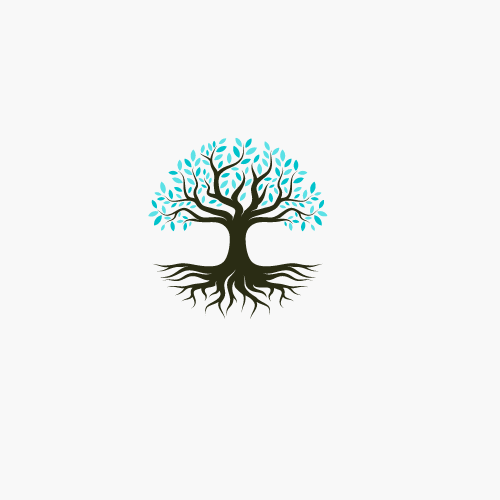Why do so many of us neglect spirituality, our most potent mental ‘muscle’?
The rewards of spirituality are formidable and unusual. Spirituality provides a refuge in times of adversity, it enhances human connection, and is a guiding star in our search for meaning.
More importantly, the potential reach and scale for personal transformation is unparalleled, and yet we allow it to be bleached out mostly by our hunger for material success, power, and control.
Now often when I attend a talk on spirituality, there’s a slight unease, having the feeling and urge to ask, “Am I possibly in the way here?” Well, the answer is probably yes. But which part of me is in the way?
My earliest encounters pre-school with spirituality I recall, were more indirect through my imagination, that multifaced companion that appeared anytime I was not preoccupied. Occasionally, imagination would even intrude uninvited, though never unwelcome, eager to reveal its vaults of novelty and delights, offering me countless new options and picking fields. Right from those early days, I became comfortable with its abstract nature, later even conspiratorial. Imagination was a less rigid alternate universe that I could skillfully surf, way more engaging than my stumble through reality.
Like imagination, spirituality is vast and encompasses a multitude of perspectives. It includes ideas, questions, attitudes, and approaches, usually characterized by a connection with something greater than us, perhaps our higher selves, and a quest for meaning. Spirituality is not solely the domain of religion, though this may play a large part for many. Good deeds, a respect and appreciation for Nature, creativity and reflections on literature and art among other things can all be accommodated.
On entry into high school, I read serious books rather than my usual go-to mystery or adventure preferences. There was nothing masochistic about this, and I had no major aspirations or ambitions. I just wanted my life to matter. Besides, I had encouragement from relatives and a family friend, who recommended books from her personal library. Like learning a new language, I reached that critical milestone where I knew that this was going to somehow work for me. So, I persevered right through high school and university despite never once being short of more urgent reading material to review. Meaning, good and evil, ethics and morality are also highlighted in great literature. Having attended church, I was familiar with the need to at very least try and incorporate the noble lessons learned into my own life, rather than leaving them yellowing in the pages of a book.
During this phase, I learned that the very question as to what you should do with your life already places you firmly in the spiritual space. Deciding which direction your company should take next, not so much.
We often hear people say, ‘right now I`m busy building capital or wealth… for my family. I can always find and ‘do’ spirituality later.’ This is like trying to schedule time for spontaneity- it doesn`t really work.
Spirituality brings us more than understanding, it confers a unique kind of knowingness, not quite the same, but curiously infused with optimism and peace, while excessive focus on the material usually ends up in a self-imposed hostage situation.
As a new medical graduate, I joined the practice of three highly respected physicians. To everyone’s dismay, several of their patients requested counselling sessions with me, someone inexperienced in both medicine and life. Eventually, one of the patients confided that they came to me because I had the face that says, ‘tell me about it.’ I would walk them through related topics and scenarios from literature that would hopefully trigger an answer to their problem in their own minds, or not. This applied to the sizeable subgroup of those who did not have more serious conditions like depression, but rather were feeling chronically jaded, having a type of ‘painted themselves-into -a- corner syndrome.’ This unconventional strategy proved to be surprisingly successful. Years later, I realized that this approach distanced patients from their problems and that the stories I related triggered helpful personal insights once they were able to see their own situation more from a distance, as well as from various alternate perspectives.
When it comes to true spirituality and social interaction, authenticity is vital, and cooperation follows naturally. Difficult conversations become seamless once defenses are lowered. Artifice, anger, and discord cannot easily survive the spiritual domain.
One still needs to internally test whether something feels right or not, as delusion may have flown in under the radar. The massive range of spirituality sometimes allows for this.
Most studies have now shown that spirituality and religious involvement yield superior health outcomes, particularly regarding mental issues, coping skills and health quality of life. The spiritual lens appears to temper judgement and lends perspective.
Years later in my career, when dealing with people in chronic physical pain, a spiritual appreciation has enabled me to connect more meaningfully in difficult situations. Even the solution to their spiritual pain is usually drawn… from spirituality itself! From my earliest professional days, I realized that there was an enormous spiritual component to all my work, as I’m sure is the case in every helping profession. I am painfully aware that people can suffer chronic spiritual pain without physical pain.
In our search for meaning, spirituality is key, as ego, vanity and deception never even make it through the gates. Many years ago, I recall a philosophy professor explaining his area of study to the class, disclosing that after considering everything possible about a particular subject, you still end up being somewhat confused, but in a way, way more interesting manner! Philosophy, seen through a spiritual lens, while admittedly not widely encouraged by academics, delivers its own lucidity, and generates hope.
Fast forward to the present. Now, as I age, I realize that the quality of spirituality tends to improve with time, as language skills often do, while many other things don’t. Entropy cannot shrivel spirituality nor deconstruct it.
We live in challenging times, confronted by several existential problems like nuclear fallout, environmental collapse, and the probability of artificial intelligence eventually pushing for its own show. These problems tend to balloon rather than subside despite having thrown billions of dollars of resources at them. Our serial failures have largely triggered more of the same reaction, and so far, science has not saved us. It has changed our lives, but science has not and will not fundamentally change who we are.
We must transform ourselves to meet these challenges. Spirituality could both coax and drag us up to loftier heights, to our higher selves, most likely better equipping us to solve these urgencies. We grossly underestimate it precisely because it is a quiet and gentler teacher; it tends to show rather than tell.
We don’t have to seek spirituality as it is innate- it is already part of us. It may be hidden or buried but it’s there. Spirituality has always been a major part of consciousness, constantly prodding us for attention ever since we first developed the ability to reflect on our own behaviors and thoughts.
However, we cannot merely think of it as a perfect space, so be aware that unworkable and even downright dangerous standpoints are known to have been ‘spiritualized,’ to the detriment of those who hear and accept, and even more so to the perpetrators.
Know too, that your spirituality may not look like anyone else’s. I often think that spiritual reflection is like a meander through great literature after trading your ego and personal agenda for the chance to walk in the shoes of others. Unencumbered by earthly clutter, and unfettered by opinion, you are way more likely to be embraced by insights rather than get in the way of them.
Spirituality is somewhat like meditation. You really don’t need to believe in it, but you do need to experience it. Just reconnect with your spirituality. There are only three steps: take courage, show up and do the time. Is the unexamined life worth living?
if you were to expose your spiritual side, nurture and develop it, would you become a better person?
The answer lies with you, but either way, spirituality will constantly and endlessly nudge you and me to precisely do that.





